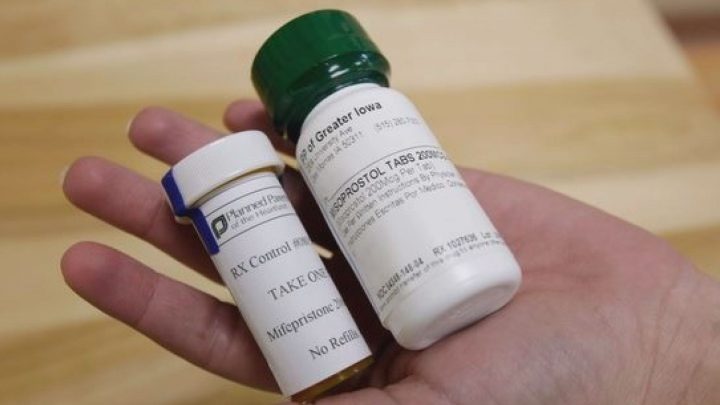Many pharmacies across Saskatchewan are not stocking the abortion drug Mifegymiso and one expert says its availability is tied to the province’s lack of coverage.

The two-pill abortion medication has become a source for debate in Saskatchewan as its Ministry of Health considers providing universal coverage of the drug, which can cost about $360 without insurance or benefits.
Saskatchewan and Manitoba are the only two provinces that do not provide universal coverage for Mifegymiso.
Saskatchewan Minister of Health Jim Reiter has said Mifegymiso is available and the only question left is who should pay for it – taxpayers or private insurance.
Amanda Purcell, a spokeswoman for the Saskatchewan Health Authority, said while the drug is available at its hospital pharmacies in Regina, it’s not in stock at its other centres.
The Canadian Press also contacted 83 community pharmacies across cities and rural parts of Saskatchewan. Seventy-nine reported they did not have it on their shelves.
Regina and Saskatoon each had at least one pharmacy with it in stock, as did a pharmacy in the remote northern village of Ile-a-la-Crosse, where a manager said she is working with a local doctor to prescribe it as needed.
- ‘Super lice’ are becoming more resistant to chemical shampoos. What to use instead
- Solar eclipse eye damage: More than 160 cases reported in Ontario, Quebec
- Invasive strep: ‘Don’t wait’ to seek care, N.S. woman warns on long road to recovery
- Canadian man dies during Texas Ironman event. His widow wants answers as to why
Some pharmacies said Mifegymiso is usually ordered as needed rather than stocked and could be brought in within a day, but others reported there was no inventory available to do so.
A spokesman for McKesson Canada, a major pharmaceutical distributor, said this past week that Mifegymiso was temporarily out of stock in Saskatchewan due to a shortage from the drug manufacturer.
Andrew Forgione said its distribution centre in Regina received stock a few days ago and would start filling customer back orders.
“Mifegymiso manufactured by Celopharma has experienced intermittent supply challenges, in part due to large swings in demand,” he said in an email to The Canadian Press.
Jeana Wendel, registrar for the Saskatchewan College of Pharmacy Professionals, said it is up to individual pharmacies to bring in medications they see fit for their practice.
Wendy Norman, a professor in the faculty of medicine at the University of British Columbia and a family planning researcher, said pharmacies are at a disadvantage because they are asked to stock a pricey medication that is in low demand because it is not available for free.
In places where Mifegymiso is fully covered, there was a distinct change in its availability, she said.
“When it’s not a business decision, when people can afford the medication, pharmacists stock it.”
Norman also said the number of health professionals prescribing the drug increases when it’s universally covered.
The Saskatchewan government added Mifegymiso to its drug plan in September 2017, but eligibility and price vary depending on a person’s coverage and benefit programs.
Data provided by the Ministry of Health shows that from the time the coverage was added and December 2018, 42 different prescribers submitted 482 prescriptions for the drug, with the majority dispensed from centres in Saskatoon, Regina and their outlying areas.
A health spokesman the British Columbia government, which fully covers the drug, said it dispensed about 4,200 Mifegymiso prescriptions in 2018.
Alberta Health says 935 prescriptions of Mifegymiso were dispensed starting mid-July 2017 when universal coverage was introduced and 2,826 were handed out in 2018.
Norman said when governments do not provide the medication for free, those who are low-income and can’t afford to pay for it are essentially forced into having surgical abortions, which are covered by provinces. “It’s a travesty,” she said.
“I’m really lucky that my insurance plan covered it,” said Lise, a woman in Saskatoon who took Mifegymiso for a medical abortion. She asked not to have her last name published.
Had the drug not been covered, she said, she would likely have had to borrow money from friends.
“I’m not in a financial position where I can just whip out $400.”


Comments